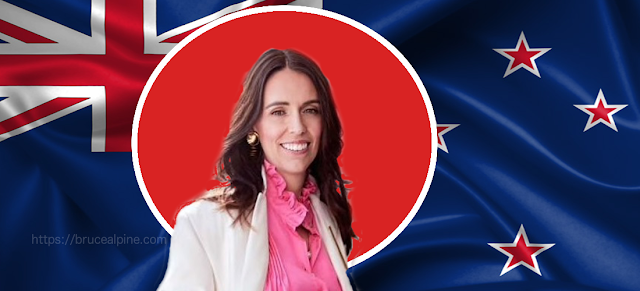PM Jacinda Ardern scores a win in ScoMo's territory
PM Jacinda Ardern scores a win in ScoMo's territory
Australia is a tough place to go if you are a New Zealand prime minister. While a close friend, and a nation with which we share the most open trade partnership and free flow of people in the world, New Zealand is still a price taker when it comes to trans-Tasman policies.
Australian politicians, in common with politicians anywhere, know where their bread is buttered. And that is rarely in doing something that New Zealand asks unless there is a local political upside in doing so. And thanks to New Zealand's relative size, there are few things that New Zealand can argue for that fit the bill.
Prime Minister Jacinda Ardern spent Friday in closed-door discussion with Australian Prime Minister Scott Morrison – the main topic discussed was the deportation of criminals that are Australian in all but legal status, which has sparked a crime wave in New Zealand, boosted gang membership and introduced a whole new Australian gang, the Comancheros, to these shores. It is a fair gripe.
Under New Zealand law, with few exceptions, if you've been on these shores for 10 years you are considered New Zealand's problem. Not in Australia, which has been deporting criminals who are Kiwi citizens in increasing numbers since the Abbott Government came to power in late 2013.
Ardern's statement, while standing alongside Morrison, that "We will own our people. We ask that Australia stop exporting theirs", was met with a tight smile and a polite rebuff.
If people-smugglers could deliver their wretched cargo to an Australian detention centre where they would end up in New Zealand, the Australians reasoned, the boats could well start again. It must be remembered that there have been fewer more awful issues in Australia than asylum seekers. Both Labor and the Liberals would be quite happy for it to go away.
The other issue is climate. Ever since John Howard lost power in 2007, climate change has been political poison. So much so that neither major party wants to price carbon emissions either through an ETS or a tax (even if that is the effect of their policies).
Over 75 per cent of Australia's national energy market is generated by coal, and Australia is the world's biggest coal exporter – out of mines that generate high-paying jobs, many of which Labor needs to win or hold to gain power in Australia. The ALP got smashed in Queensland last election because of it. Ardern sensibly stayed away from it on this trip.
So, although both issues have international implications, Ardern has instead focused on a New Zealand-specific problem that it is in Australia's power to fix if it so desires. The worst Scott Morrison could do say was say no, which he did. And that is precisely what Australian Minister of Home Affairs Peter Dutton has been politely but firmly doing behind closed doors to New Zealand officials for years.
The fascinating thing domestically is how the gangs and deportations issue is clearly now starting to nip at Labour's heels. It has not been the party of law and order for many decades, but suddenly Ardern is turning around and telling Australia in no uncertain terms that its deportations are responsible for exporting a crime wave to New Zealand? It must be election year.
The two best things a government can do against an opposition that has latched on to a potent issue or two is either to essentially steal the policies and make them its own, or cauterise the political downside as much as possible by ruling out clearly unpopular policies.
By digging at Australia on the worsening the gang problem here, Ardern has clearly taken the view that there is a political need to blame someone for the resurgence of gangs, which according to police figures have grown by a third since 2016.
The handshakes may have been cordial, but Morrison stood firm on the deportations issue.
That suggests that, besides the moral dimension of deportation, gangs are now enough of a problem for the Government to try to take the issue away from National. There was no small irony that, the night before Ardern was due to meet Morrison, Simon Bridges was fronting up to a meeting on gangs and crime in Tauranga.
It is an issue that bubbles away below the surface but can affect a lot of people. Of course it is easier to hold meetings in opposition than to root out the gangs in government, but Bridges is trying to show his community an intent to do something on it.
National has already had one of its most potent issues – infrastructure – whipped away from it by Labour for the time being. It won't want to surrender law and order now.
In a way, it is neither here nor there that Morrison gave Ardern short shrift on the deportations: "You commit a crime here, you're convicted, you do your time, you go home," he said. If it's in his interest, his government will do something; it won't if it's not.
The point is that Ardern is making the case, while also condemning the gangs, and arguing that it's not her Government's permissiveness, policies, or anything else that has contributed to their rise.
Law and order just became a bigger part of the election campaign.






Comments
Post a Comment